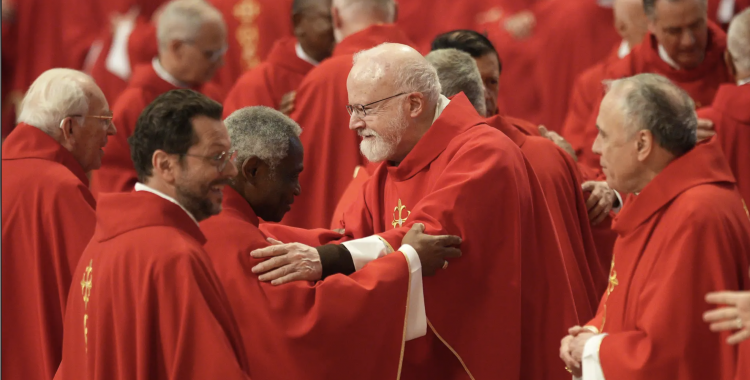Students of a master's degree in canon law at the Pontifical Urbaniana University for six years, Arsénio Messias and Daniel dos Santos praise Francis' work and call for a successor who will ensure the cohesion of the Church, considering that it is possible to respond to the challenges of today's world and maintain respect for tradition.
Francis “was a Pope who was very close to the people, especially those who are on the margins of today’s world”, seeking to “go out to meet the sheep”, Arsénio Messias, 31, told Lusa.
As for his successor, Arsénio Messias hopes that “he will be a Pope closer to the People as Pope Francis was and that he will be a Pope who maintains the unity of the Church and the holy tradition”.
Regarding the conflict between progressives and conservatives, with the latter predominant in many African countries, Arsénio Messias prefers to stay on the sidelines, considering that it is “possible to reconcile” the two tendencies, “if he is a balanced Pope who can balance tradition and the current context”.
Daniel dos Santos, 27, prefers to remember Francis as an example of volunteerism and the desire to reach out to “people and peoples”, in a “Church that goes out and leaves its offices”.
During the Conclave, which begins this Wednesday, Daniel dos Santos hopes that the cardinals will elect someone who “follows the heart of God and the expectations of humanity today.”
“We are not so concerned about the continent or the country of origin, but rather that he be a bishop for the Church of Rome and a bishop for the universal Church,” he said, hoping that the new leader of the Church will also bring pastoral innovations.
“There will be continuity with Pope Francis, but there will be changes and there will be steps forward,” but “steps towards continuity that is the tradition of the Catholic Church,” added Daniel dos Santos.
Many conservatives have advocated a return to the policy of “hermeneutics of continuity” in interpreting the Second Vatican Council, a meeting in the 1960s that proposed structural changes in the Church to adapt it to the modern world.
Unlike other conclaves, Angola has no elected cardinal, the last one being Alexandre do Nascimento.
Francis diversified the creation of cardinals during his pontificate, but the Angolan Church did not receive any appointments.
Daniel dos Santos admitted to Lusa that this is also one of his wishes for the new pontificate: “We hope to once again have a representative before the Roman Curia and, perhaps, that the new Pope can create an Angolan cardinal.”
Arsénio Messias is less concerned about the existence of an Angolan cardinal.
“If we have a cardinal in Angola it is a source of pride, because I am Angolan, but if we do not have anyone it will not be a problem and I will continue to maintain the Christian faith”, he said, recalling that “the cardinalate is a dignity that the Pope can freely confer on someone”.
This Wednesday the Conclave begins, which brings together 133 voters from 70 countries and, to achieve victory, the chosen name will have to obtain 89 votes from the electoral college.
Starting on Thursday, four votes will be held daily, two in the morning and two in the afternoon. At the end of each set of votes, the ballots will be burned and chemicals will be added to ensure the smoke is either black, in the case of an inconclusive vote, or white, in the case of a vote that elects the 267th leader of the Catholic Church.
Throughout his pontificate, the Argentine Jesuit tried to promote internal discussion, from the grassroots, about what changes to implement in the Church.
Controversial topics such as married priests, women's access to the permanent diaconate, the return of divorcees, the treatment to be given to homosexuals and the Church's relationship with other religions are part of this internal discussion, which started with lay movements, called the Synodal Process.
After the election and the white smoke, the new Pope will choose his name and will be presented to the faithful present in St. Peter's Square.
On this occasion, the Conclave ends and the cardinals leave the House of Santa Marta. Only days later, as is tradition in the Catholic Church, the new Pope will preside over his mass to begin his Pontificate.







